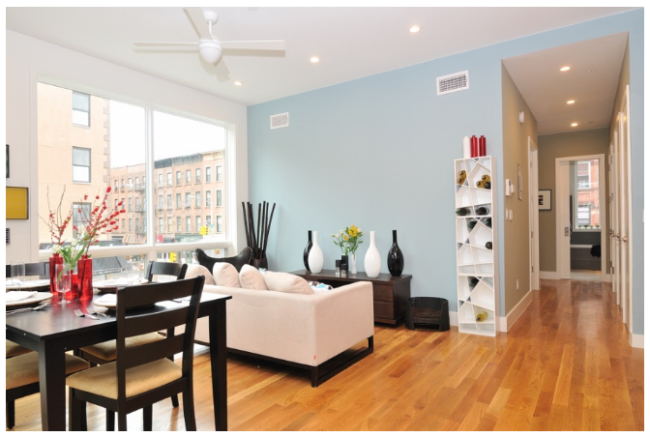5 strategies for renting out your furnished apartment safely
If you are considering renting out your apartment fully furnished—maybe while you travel or take a contract job in another city—there’s a lot to think about, plus a new wrinkle: You should know that changes to New York City’s rent laws will also impact you. Namely, you’re going to have a lot more competition than you probably thought.
That’s because smaller New York City landlords, who now face a cap on the amount they can take as a security deposit from tenants and aren’t prepared to rent to anyone who doesn’t meet high income standards, may be turning to furnished rental companies to let out their apartments.
Eric Hamm, senior managing director at Citi Habitats, says the rent reforms have resulted in a “surge in furnished housing.” Instead of taking on multiple tenants, which presents a deeper financial risk, he says many landlords are turning over their units to companies who specialize in furnished housing.
Editor's Note: A earlier version of this post was published in April 2018. We have updated it with new content for October 2019.
Why rent your place fully furnished?
Despite the increased competition, there are still advantages to renting out your unit fully furnished. Elizabeth Kee, a broker with CORE, says for the condo owner who spent $50,000 on furnishings and interior design but has to relocate and doesn’t want to sell, it makes sense to rent the apartment furnished rather than pay for the removal and storage of expensive items.
And tenants who are looking for the flexibility and convenience of a furnished apartment also benefit by not being charged the upfront move-in fees often demanded by condo and co-op boards. Kee says these fees are waived when there is no furniture being moved in and out.
Renting a place fully furnished is typically more expensive than a regular apartment, but short-term renters value the ease and convenience of not having to furnish a place.
Furnished apartments can also provide an alternative rental option for those without U.S. credit. Hank Jonap, director of real estate at Blueground, a company that provides turn-key apartments in cities around the world including New York, says he is seeing an increased demand for furnished units from non-U.S. clients and those without a credit rating. Some of these renters are being turned away by landlords who can no longer offset the risks presented by these tenants by taking higher security deposits, as they did prior to the rent reforms.
“As an international company we are used to dealing with clients who are not U.S. citizens and we have a different appetite for risk [than traditional landlords],” Jonap says.
For those wanting to rent out an apartment fully furnished, it’s worth taking some precautions to protect your place and its contents. Read on for what you need to know.
1) Prioritize tenant screening
Having a smooth experience renting out your furnished apartment often comes down to finding the right client. Jonap says the priority is to find the renter you feel comfortable with and someone who fits into the building community. In his experience “many of the headaches come from [renting to] someone who doesn’t fit into the culture of the property,” he says.
Likewise Kee says landlords often don’t go the full mile in requiring or calling references and following through on credit and background checks. She says following up with personal references is an important part of the process especially now that you can no longer discriminate against tenants who have a bad tenant-landlord history.
2) Get insurance
When it comes to insurance, if you are renting out a co-op or condo rather than living in it, your insurance must be revised. “The policy that covered you as an owner occupant will not cover you as a landlord. You need your policy amended or you need a different kind of policy,” says Jeff Schneider of Gotham Brokerage (FYI, a Brick Underground sponsor).
Your tenant should also have renters insurance to cover their property and liability. Having pictures of the condition of your furniture is helpful too. It’s “always a good idea to have digital photos of your property stored online for future reference,” says Schneider.
3) Take a deposit on the furniture
The security deposit for a rental is capped at one month’s rent but that’s not to say you can’t ask for some security on the furniture. Kee says this “loophole” allows savvy landlords to create a separate agreement for the furnishings and keeps them on the right side of the law.
“Tenants may have an additional deposit but it’s not part of the leasing, it’s a separate agreement specifically about the leasing of furniture,” she says.
However, the rent reforms complicate this. Michelle Itkowitz, an attorney and creator of the Tenant Learning Platform, says "if a landlord rents [a place] furnished, the extra value added by the furniture gets rolled into the price for the apartment. Then whatever one-month of that value is, that’s what can be requested as security or for an advance. That’s how I predict the statute will be interpreted by the courts if landlords ask for extra deposits regarding furnishings."
4) Stay in touch with your tenants
It’s not a bad idea to email or phone your tenant either monthly or semi-annually to make sure nothing is in disrepair during the tenancy says Kee. This allows you to keep up the quality of the rental.
“If you get something in writing, the tenant can’t later tell you the sink has been broken for six months and they want a rent rebate or make claims that things were not properly serviced,” she says. Keeping a record of damages allows you to stay on top of any maintenance issues.
5) Send in a cleaner
Landlords renting out furnished apartments often require a mandatory cleaning fee which covers the cost of a cleaner going in on a weekly or monthly basis. Regular cleaning is likely to give your furniture extra protection against wear and tear or damage related to spills or pets.
Keep in mind, however, this is another area that is complicated by the rent reforms. Cleaning fees are not allowed in rent-stabilized apartments and in market-rate ones, they are questionable. Adam Stone, an attorney with The Stone Law Firm says while landlords "may be able to come up with loopholes, these ideas probably violate the intent of the law, if not the letter of the law."





























